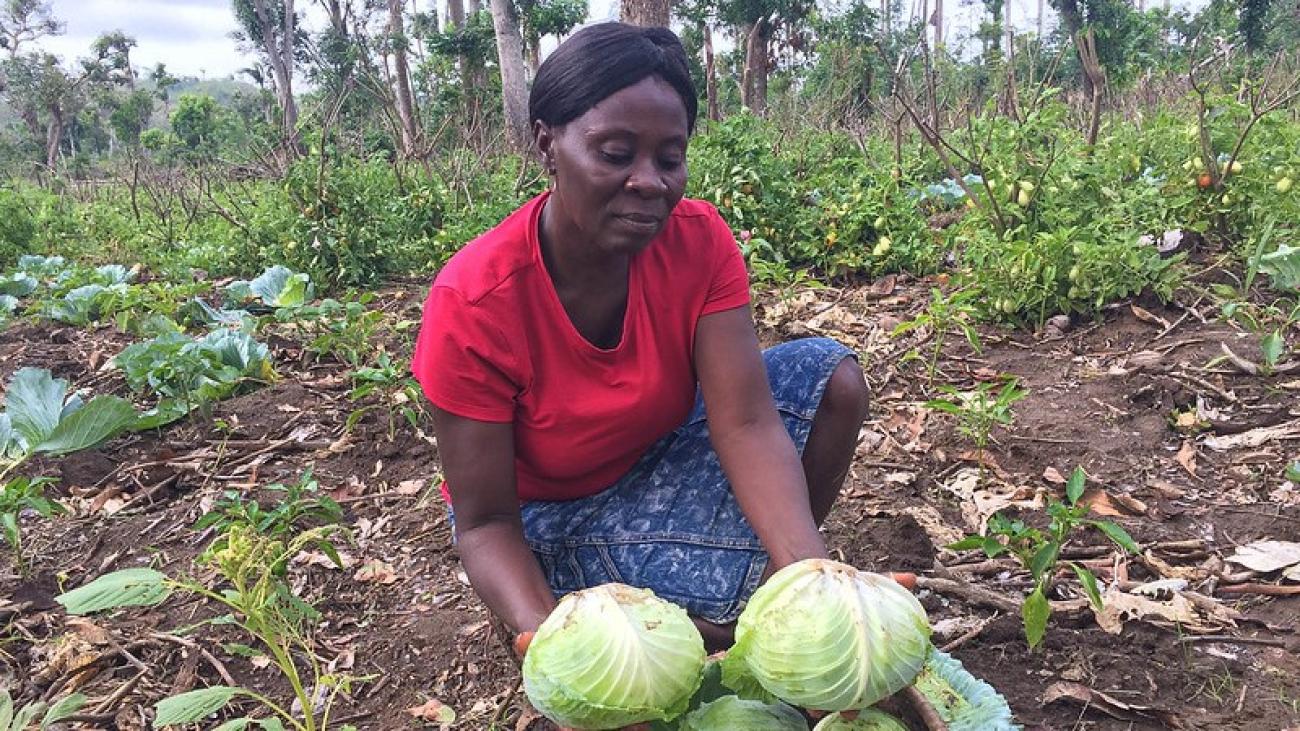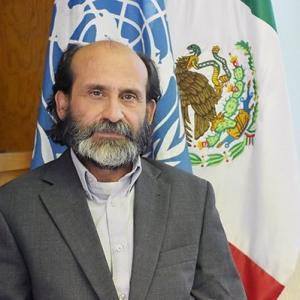It’s time to think holistically: the case for a transformation of our food systems

Daily struggles for access to affordable, nutritious food in the Caribbean must be tackled through strategies to deliver more sustainable food systems.
According to the joint United Nations 2019 Regional Overview of Food Security and Nutrition in Latin America and the Caribbean, there are 600,000 deaths each year in Latin America and the Caribbean as a result of inadequate diets. Unhealthy diets throughout the region are often due to a low consumption of whole grains, nuts, seeds, and vegetables, along with high sodium intake. The report also suggested that in the Caribbean, the highest mortality rate was linked to inadequate diets where it was estimated that 240 adults per 100,000 died due to the impacts of poor eating habits.
Our Caribbean farmers and small-scale producers struggle daily with limited access to reliable markets, our people face difficulties acquiring sufficient, healthy and nutritionally balanced food, and we also continue to see an increase in the ecological footprint of our agri-food sector.
These complex and interlinked problems raise the question: Are our nation states ready to provide the strategic vision needed to transform production and consumption systems and promote more sustainable food systems? The answer to this question will surely determine the future of our social and economic development and of our food and nutritional security.
The goal of transitioning to more sustainable food systems is intimately linked with our global efforts to meet the 2030 Sustainable Development Agenda and the 17 Sustainable Development Goals, as well as the commitments towards lowering global greenhouse gas emissions, set under the Paris Agreement.
As we are still reeling from the massive impacts of the COVID-19 pandemic, can we really transform our agri-food systems by 2030—in just nine years—, to confront both the environmental and climate crisis, and to give immediate support to the many millions hard-hit by the pandemic? The answer, to quote a popular saying, is that where there is a will, there is a way.
We must first begin by looking at food in a different, more comprehensive and holistic way. We need to take into consideration health, agriculture, the environment and the economy as an interconnected whole. It is imperative that we recognise that the great challenge that our food systems face is not just to produce food, but to have a direct, positive impact on food and nutrition security, while also contributing more broadly to building a sustainable planet and sustainable livelihoods for all, in the short and the long term.
The subject of food security and the sustainable transformation of food systems has always been present within the ideology of the Caribbean statehood; many Caribbean states already have the necessary elements in place to be able to move forward on this, with a sense of urgency.
The first step to spark this great transformation is for all Caribbean countries to build up their institutional capacity to develop political strategies, regulations and legal frameworks to move towards a climate friendly food future that protects and restores our biodiversity.
Luckily, these changes are already underway: Jamaica, for example, has been able to develop concrete action plans for increasing the sustainability of its agriculture, forestry and fisheries sectors by shoring up its institutional and political capacity, and nurturing an inclusive dialogue with the private sector, civil society and academia.
This has allowed the country to take active steps towards transitioning into a sustainable food system, by implementing programs that combine social and environmental development, and economic empowerment, such as the Programme of Advancement through Health and Education (PATH), the agriculture Buy-Back programme, the Tree Planting Initiative and the School Feeding Programme.
With these and other initiatives, Jamaica is already working to deliver healthy and nutritious diets, promote environmental sustainability, and strengthen the lives and livelihoods of its marginalized populations.
A second vital transformation for the Caribbean has to do with increasing its scientific and technical knowledge to support the transition towards nature-positive and sustainable agriculture. Technological innovations in the agro-food systems––such as the use of digitalization and precision agriculture, together with restorative agricultural techniques–– allow for dramatic reductions in the use of chemical inputs and water, meeting some of the key climate change and environmental challenges.
Digitalization is also useful in reducing food loss and food waste at local and regional levels. However, access to innovation has to overcome existing social and regional inequalities, in order to reach the poorest rural and urban communities.
That is why the FAO is supporting Jamaica and other countries in the Caribbean in the development of such agri-food innovations. FAO’s technical assistance aims to help smallholder farmers, micro-enterprises and other actors to truly benefit from the digitalization of food systems.
A third aspect that will be fundamental to the much-needed change is political will and international cooperation: that is why the upcoming United Nations Food Systems Summit, which will be held in September this year, is so important. It has the potential to accelerate global momentum on the subject of sustainable food systems transformation and will seek to deliver progress on 12 out of 17 of the Sustainable Development Goals (SDGs) through a food systems approach, leveraging the interconnectedness of food systems to address global challenges such as hunger, climate change, poverty and inequality.
As countries convene national dialogues to prepare for this much anticipated event, key actions that will determine our future of food in a more holistic way are now coming to the fore;
countries are examining the changes to be made and making greater commitments with the aim of transforming their agri-food systems, seeking innovations in several key areas: in policies for lowering the cost of healthy diets, in institutions, in technologies for plant breeding, animal health, and new protein production, and in the use of digital opportunities.
Through technical cooperation, we can begin to rethink our food systems approach, especially as we build back better in the era of COVID-19. By the sharing of ideas and innovations, the strengthening of policies and the creation of regional and international partnerships, FAO and the rest of the United Nations system remain key allies for countries of the region in supporting its inclusive journey of ensuring food and nutritional security and stronger agri-food systems for all.
This is a historical moment for Caribbean countries. We have the unique opportunity to engage and build together integrated public policies, sharing and delivering science and evidence-based discussions to confront the climate, food and social crises we now face.
In doing so, we can achieve greater sustainability of our food systems to ensure that all citizens, at all times, have better standards of living and access to healthy food produced in harmony with the environment.





